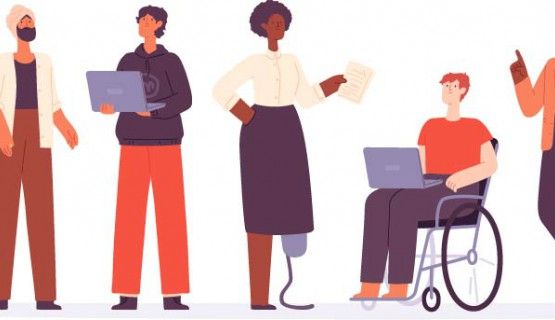Job accommodation
Job accommodations, through modifications or adjustments to job processes, work environments and/or work schedules, are a key component of stay-at-work and return-to-work programs that are designed to ensure workers with work- or non-work-related injuries or illnesses (physical or mental) are able to sustain their employment. IWH conducts a wide range of research in this area, exploring barriers and facilitators to successful job accommodation, as well as disclosure of disability and other complex issues surrounding the accommodation of injured or ill workers.
Featured

At Work article
Police service members face challenges with accommodation, communication and trust when returning to work after an injury
A recent IWH study examined the experiences of sworn and civilian Ontario police service members returning to their jobs after experiencing an injury or illness. It found their RTW challenges revolved around five main themes.
Published: September 18, 2023

At Work article
How government funding can best support the employment of persons with disabilities
What kind of government funding best encourages employers to hire and retain persons with disabilities? A research team at the Institute for Work & Health recently explored this question.
Published: May 4, 2022
IWH Speaker Series
IWH Speaker Series
Promoting labour market transitions for young adults with chronic disabling conditions: a systematic review
Young adulthood is an important phase of life when most people establish their careers. And yet, it's a time when many young adults with disabling health conditions find themselves excluded from the labour market. A systematic review led by Dr. Arif Jetha examined work-focused interventions to support the transition of these young adults into the labour market. In this presentation, he shares findings and highlights the effectiveness of these interventions across different career stages and disability types.
Published: November 2018

IWH in the media
Supervisors play key role in return from injury, study finds
A recently released report urges employers to ensure supervisors express immediate support when a worker is injured or becomes ill and that they then remain positive during the recovery period to best ensure successful return-to-work (RTW) outcomes, writes Don Wall in Daily Commercial News.
Published: Daily Commercial News, August 2018

Research Highlights
How workplace support needs differ for younger and older adults with chronic disease
When it comes to workplace supports, people with chronic disease have similar needs, even at different ages and career stages. However, young people face unique challenges related to accessing workplace supports, including a lack of available workplace resources and difficulty overcoming preconceptions around youth and chronic conditions.
Published: August 2018

At Work article
Sex/gender analysis: Men and women with arthritis have same needs at work, but not the same supports
Study of workers with arthritis finds the need for workplace supports goes unmet more often among women, and that's due to the type of jobs and workplaces women are in.
Published: August 2018

At Work article
Benefits outweigh costs for workplaces that accommodate people with mental illness
For employers, the economic benefits of hiring and accommodating workers with mental illnesses range from two to seven dollars for every dollar spent. That's according to a new study on the business case of accommodating mental illnesses.
Published: July 2018
IWH Speaker Series
IWH Speaker Series
Challenges in accommodating mental and physical health conditions: What workplace parties are saying
In this presentation, Dr. Monique Gignac shares findings from a study examining organizational perspectives on implementing work disability prevention and management practices, as well as key issues in supporting workers with chronic, episodic conditions.
Published: June 2018
IWH Speaker Series
IWH Speaker Series
The effects of gradual return to work on sustained return to work
Gradual return to work (GRTW) provides workers recovering from an injury with the opportunity to limit or modify work tasks and gradually build up work hours and work load with the goal of returning to full hours and duties. In this presentation, Dr. Esther Maas presents her research, which used detailed administrative workers’ compensation calendar data on return-to-work (RTW) in British Columbia to explore the effect of GRTW on sustained RTW. She also discusses opportunities for using population-based data to analyse the costs and effects of GRTW to improve RTW outcomes.
Published: June 2018
Journal article
Journal article
Are there differences in workplace accommodation needs, use and unmet needs among older workers with arthritis, diabetes and no chronic conditions? Examining the role of health and work context
Published: Work, Aging & Retirement, June 2018
Journal article
Journal article
The role of sex, gender, health factors, and job context in workplace accommodation use among men and women with arthritis
Published: Annals of Work Exposures and Health, February 2018
Journal article
Journal article
Fatigue and depressive symptoms improve but remain negatively related to work functioning over 18 months after return to work in cancer patients
Published: Journal of Cancer Survivorship, February 2018